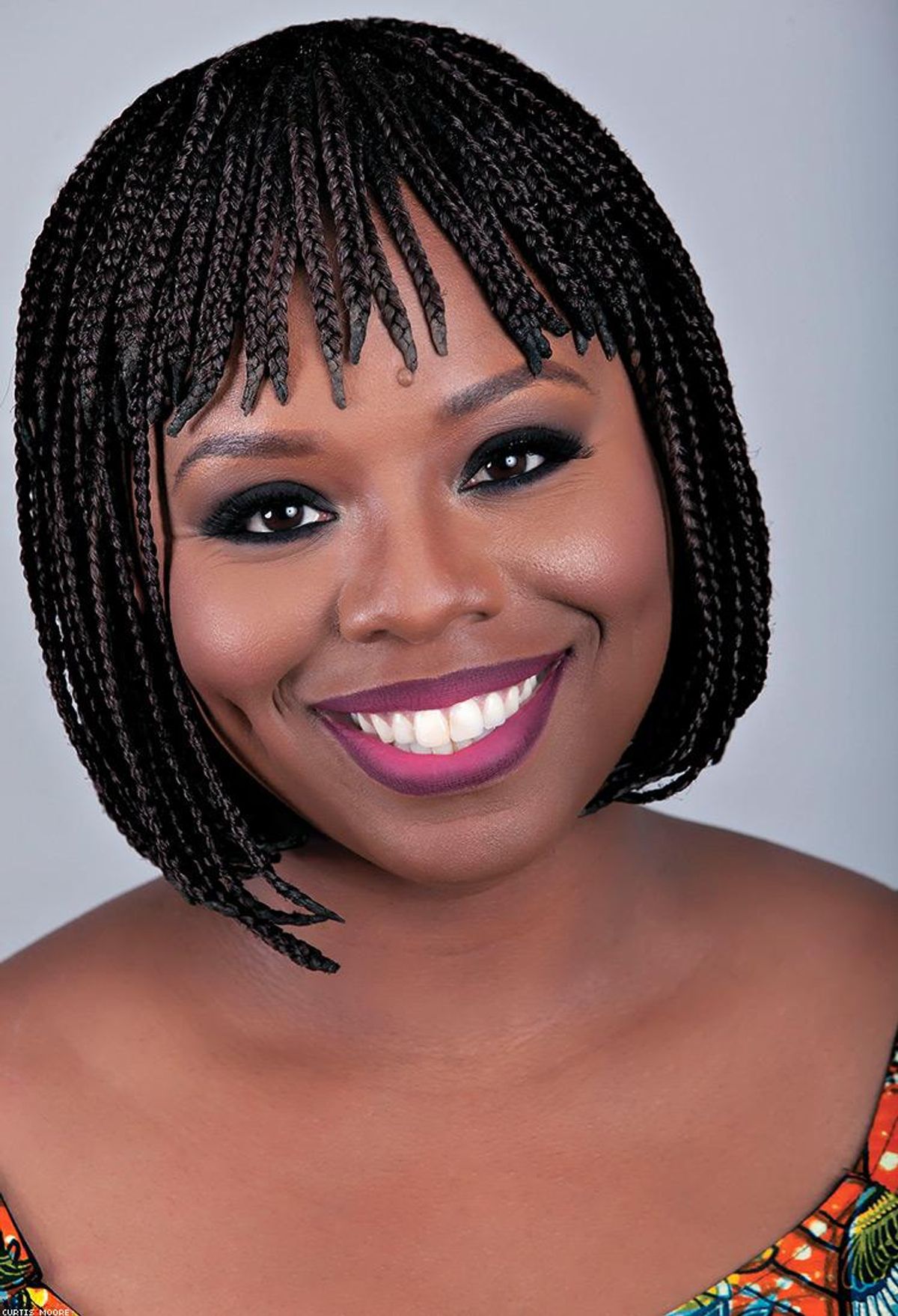"We're in the moment of reckoning right now," says Patrisse Khan-Cullors, the activist and artist who cofounded the now-global civil rights movement Black Lives Matter with a hashtag in 2013.
Of the continuing violence and racial uprisings currently plaguing our country, the Fulbright scholar and recipient of this year's Sydney Peace Prize tells The Advocate, "We are clearly in the middle of, really, a war around ideology, and whether or not this country is going to eradicate white supremacy -- or is it going to cling to it, like its life depends on it?"
Khan-Cullors -- who founded the Black Lives Matter movement with fellow activists Alicia Garza, and Opal Tometi in response to the acquittal of 17-year-old Trayvon's Martin's killer -- says the movement has also always been about inclusiveness and visibility for LGBT people of color.
"I'm queer, so is Alicia -- we are openly queer black women, and some of the experiences we've faced inside traditional black liberation spaces is that we were to be black first, and that the queer stuff and the woman stuff were sort of things on the side," says Khan-Cullors. With BLM, she says they wanted it to be clear from the beginning that "this was an organization not only led by black women, but it's also a movement led by black queer women, black trans women, and that we can't deny those identities and we can't put those on the backburners, as we've seen historically in other civil rights movements."
Khan-Cullors says she decided to write her memoir, When They Call You a Terrorist (St. Martin's Press) -- which she coauthored with activist, writer, and her personal mentor, Asha Bandele -- to give a voice to other young women of color, whose stories are rarely heard.
"It's my story, but it's [also] the story of young black girls that grew up in neighborhoods that were poor, and neighborhoods that were impacted by the war on drugs and the war on gangs," explains Khan-Cullors. "I talk about my early childhood and my relationship with my mother, my father, and my siblings."
Khan-Cullors compares her memoir to The New Jim Crow, Michelle Alexander's acclaimed dissection of the Unites States's systematic oppression of African- Americans, which ultimately denies people the very rights supposedly won in the civil rights era. "It's sort of like taking that book and zoning in on one person's experience," Khan-Cullors explains. "And talking about the real-life impact that [these conditions have] on me and my family."
Khan-Cullors says When They Call You a Terrorist is also the story of the birth of the activist within her -- of how the environment and experiences of her youth awoke in her the need to fight the injustices that surrounded her and impacted her community. She says the book, which includes a foreword written by the legendary Angela Davis, is really the story of "why Black Lives Matter lived inside of me long before we created the hashtag."
Khan-Cullors says that the work of BLM is as much about "changing the ideology that this country was founded on" as it is about changing policy and people's lives. But, she understands it's not something that can happen overnight.
"What I'm hopeful for though, in this moment, is that we're having bold and courageous conversations that are met with bold and courageous action. And we've seen Black Lives Matter, in particular, change the culture in which we are able to debate a new way for America."




















































































